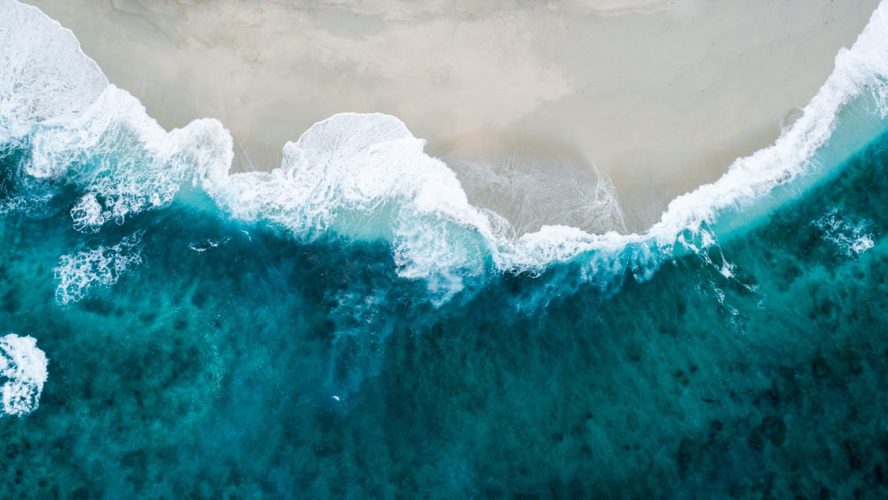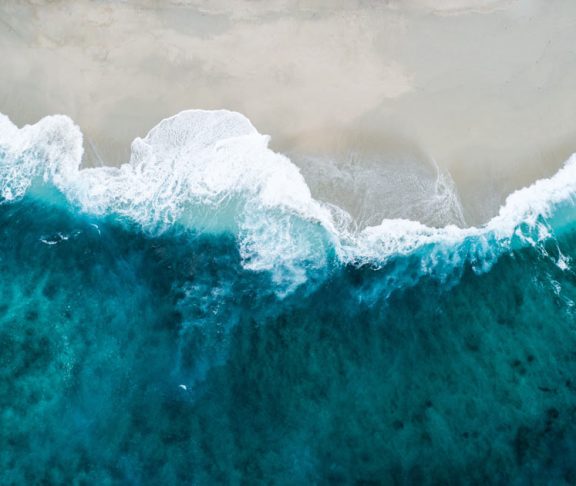
Avrim Lazar
Convenor of the Global Salmon Initiative (GSI)
Salmon farmers from around the globe join together to accelerate progress towards sustainable food production.
Oceans are a shared resource. That means we are all responsible for their use and protection. After all, there are no benefits to unhealthy oceans.
Global non-governmental organisations and governments have important roles to play in safeguarding the world’s oceans. However, the private sector also has a critical role and often has increased capabilities and resources to do so. Under the guiding principles of the United Nations Sustainable Development Goals (UN SDGs), the private sector has been provided with a framework on which to guide its operations towards a more sustainable and responsible future. Partnerships form a critical part of this framework, as they act as a key driver in accelerating change at speed and scale.
The ocean’s role in the global food challenge
As we look to the future, we are faced with a substantial challenge – how to feed a growing – and increasingly wealthy – population in a sustainable way.
By 2050, it is predicted there will be 9 billion people on Earth, and there is simply not enough arable land or water for traditional agriculture to meet these demands. We must look to our oceans to help fill the protein gap, but it is important we work together to ensure we do it in a sustainable manner.
Aquaculture offers one potential solution to addressing future food demands – healthy and high in protein, fish farming is intrinsically more ecologically efficient and less harmful to the environment than other types of protein production, and at the same time helps maintain healthy numbers of wild fish. However, the industry must make changes if it is to reach its potential.
A commitment to UN SDG 14 – a call to conserve and sustainably use the oceans is key. In addition to this, clear goals for the future of aquaculture are critical, putting responsible use of the oceans at the center, alongside three other integral pathways: transparency, collaboration and innovation.
Working towards this vision as a collective of private sector companies enables change to happen at greater speed and scale than if working in isolation. But what do these pillars mean in practice?
Industry leadership in creating a sustainable future
- Responsibility: When it comes to oceans, the actions of the few impact upon the many. For this reason, we are all responsible for operating to the highest levels of ocean stewardship. To demonstrate accountability, commitments should be made to achieving the most robust seafood certifications – for example the Aquaculture Stewardship Council.
- Transparency: Taking the brave step of transparently reporting on key sustainability indicators via annual reports, demonstrates commitment to progress and ensures companies are being held accountable.
- Innovation: To tackle the challenges facing our oceans – whether that be plastics pollution, acidification or depletion of fish stocks, innovation is needed. When it comes to environmental innovation, we have learnt that new ideas can be developed much faster and deployed wider by working together and sharing expertise.
- Collaboration: A collaborative ethos should be taken within industries, but must also extend out to key stakeholders from both private and public sectors. We work closely with the supply chain – acknowledging that to create broader and more meaningful change, we must look beyond our core operations. Collaborations should also take a valuable role in engaging our local communities to inspire and educate responsible ocean use.
Shared responsibility
The progress being made by the farmed salmon industry is significant, but there is still more to be done to balance increasing food production with ocean sustainability. We hope the Global Salmon Initiative can act as an example of what can be achieved by working together, and jointly taking responsibility for the oceans and all that they offer.

